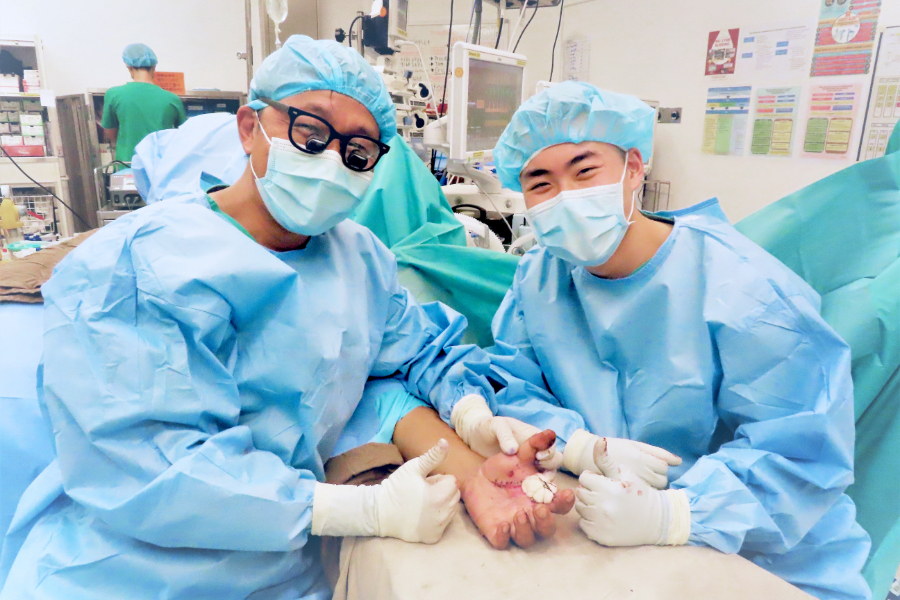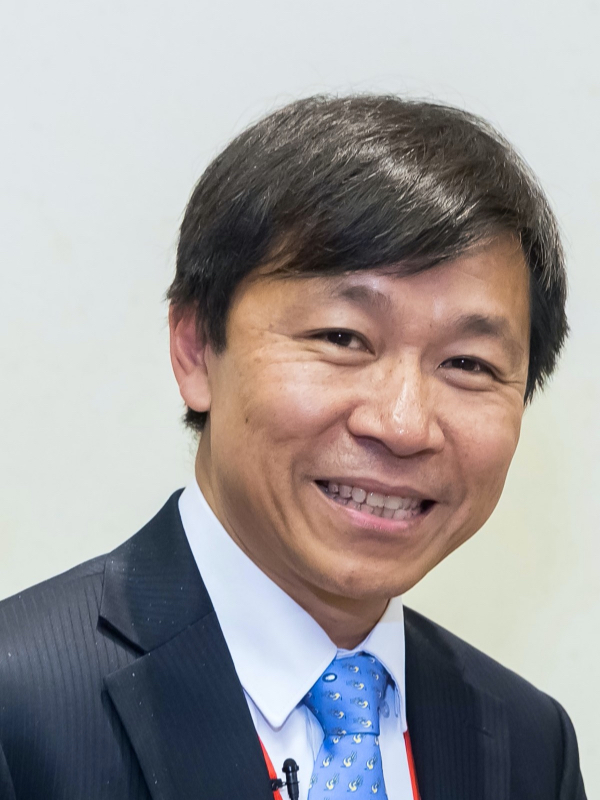Two strategies for staff retention
 Staff retention is no doubt the most important goal in achieving sustainability in the Hospital Authority (HA). The HA Board has approved two new policies earlier, including the policy of extending employment beyond retirement, and the creation of a new rank of Associate Nurse Consultant (ANC) to enhance the career structure of nursing grade. More details on the new policies will be introduced by HASLink.
Staff retention is no doubt the most important goal in achieving sustainability in the Hospital Authority (HA). The HA Board has approved two new policies earlier, including the policy of extending employment beyond retirement, and the creation of a new rank of Associate Nurse Consultant (ANC) to enhance the career structure of nursing grade. More details on the new policies will be introduced by HASLink.
Policy of extending employment beyond retirement
Welcomed by staff: to pass on experiences
The retirement wave of clinical professionals will be at its peak in the coming ten years, which becomes a huge challenge for sustaining public hospital services. It is expected that about 1,000 doctors and 5,000 nurses will be approaching retirement age in the coming ten years. The HA will safeguard manpower and retain experienced staff by implementing proactive measures. Under the new policy, the HA will engage and communicate with the retiring staff as early as at age 55 to allow sufficient time for their retirement planning and deciding whether they are interested to extend employment beyond retirement. It allows flexibility for retirees in choosing the employment options, timing and duration of the further employment which will be up to age 65.
Dr Ho Pak-cheong, Chief of Service of Department of Orthopaedics & Traumatology of Prince of Wales Hospital, at age 58, is one of the staff approaching his retirement age. He reckons that the new policy allows more flexibility, “people at the age of 60 are still in the prime. Many doctors overseas work even till 65 or 70.” Experienced doctors emphasise on the dissemination of experience. Dr Ho comments, “teamwork is the most valuable in public hospitals. You can’t perform a surgery alone. Experienced surgeons should pass on their expertise to the next generation whenever possible. In the past 10 years, I have spent 80% of my time on teaching medical students, interns, trainees and even the colleagues who have just been promoted to Consultant. We make progress together and I enjoy very much.”
Dr Ho Pak-cheong, Chief of Service of Department of Orthopaedics & Traumatology of Prince of Wales Hospital, at age 58, is one of the staff approaching his retirement age. He reckons that the new policy allows more flexibility, “people at the age of 60 are still in the prime. Many doctors overseas work even till 65 or 70.” Experienced doctors emphasise on the dissemination of experience. Dr Ho comments, “teamwork is the most valuable in public hospitals. You can’t perform a surgery alone. Experienced surgeons should pass on their expertise to the next generation whenever possible. In the past 10 years, I have spent 80% of my time on teaching medical students, interns, trainees and even the colleagues who have just been promoted to Consultant. We make progress together and I enjoy very much.”

Dr Ho also shares an unforgettable experience with us. An intern doctor was keen on skin grafting. Dr Ho supervised him to do the debridement, skin harvesting and stitching, step by step. He adds that “the patient made a very satisfactory recovery. It was a precious opportunity for the intern to acquire surgical skill, building self-confidence and developing interest in orthopaedics, which is the most important.”
Dr Ho considers it a bit early to plan for retirement, but the new policy definitely provided him a good option, “I have been getting along well with my teammates. Not many surgeons are specialised in hand surgery. A flexible work arrangement enables me to disseminate my knowledge and skills to the younger colleagues. Imagine that if I can visit different hospitals every week in assisting surgeries, training and patient consultation, this will be very attractive and meaningful to me.”

Dr Ho considers it a bit early to plan for retirement, but the new policy definitely provided him a good option, “I have been getting along well with my teammates. Not many surgeons are specialised in hand surgery. A flexible work arrangement enables me to disseminate my knowledge and skills to the younger colleagues. Imagine that if I can visit different hospitals every week in assisting surgeries, training and patient consultation, this will be very attractive and meaningful to me.”
